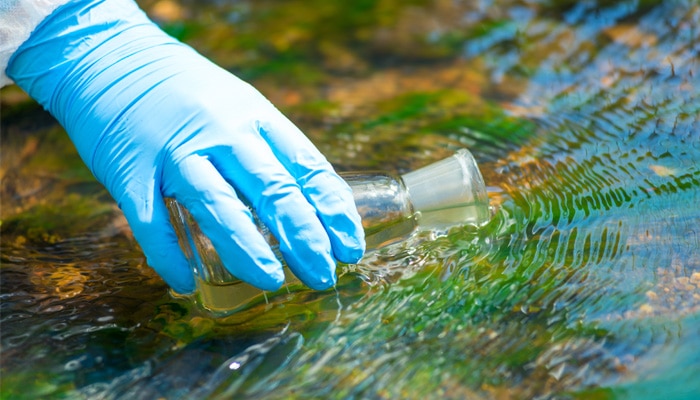

Laboratoire Phytocontrol offers COFRAC-accredited analysis of chlorothalonil and its metabolites (Chlorothalonil 4-hydroxy, Chlorothalonil R471811, Chlorothalonil SA) in fresh waters.
Chlorothalonil is a fungicide commonly used in agriculture to combat various fungal diseases affecting crops. It is particularly effective against a wide variety of pathogenic fungi, responsible for mildew, leaf spot and rot.
However, the use of chlorothalonil has been banned in the European Union since 2020. After application to crops, this active substance degrades into several metabolites, including chlorothalonil-R471811, chlorothalonil 4-hydroxy, chlorothalonil SYN507900 and chlorothalonil SA.
In addition, although chlorothalonil is not very soluble in water, its metabolite chlorothalonil R471811 is very persistent in aquatic environments. In an opinion dated January 26, 2022 (Saisine n° "2021-SA-0020-b"), ANSES classified chlorothalonil R471811 as a relevant metabolite, indicating that it could represent a risk to human health. It is important to remember that the decree of January 11, 2007, and its successive amendments, set a quality limit of 0.1 µg/L for pesticides and relevant metabolites in water intended for human consumption (EDCH).
To meet the regulatory requirements for these compounds, Phytocontrol offers a complete analysis of chlorothalonil and its metabolites, using state-of-the-art technologies and with reduced analysis times.
Need technical, regulatory or pricing information? Our customer service is available from 8 a.m. to 6.30 p.m., Monday to Friday.
And if you don't want to miss any Phytocontrol news, join us on our LinkedIn page!
Est-ce que l'article vous a été utile?
Note moyenne 0 / 5. Nombre de votes : 0
Aucun vote pour l'instant ! Soyez le premier à évaluer cet article.




